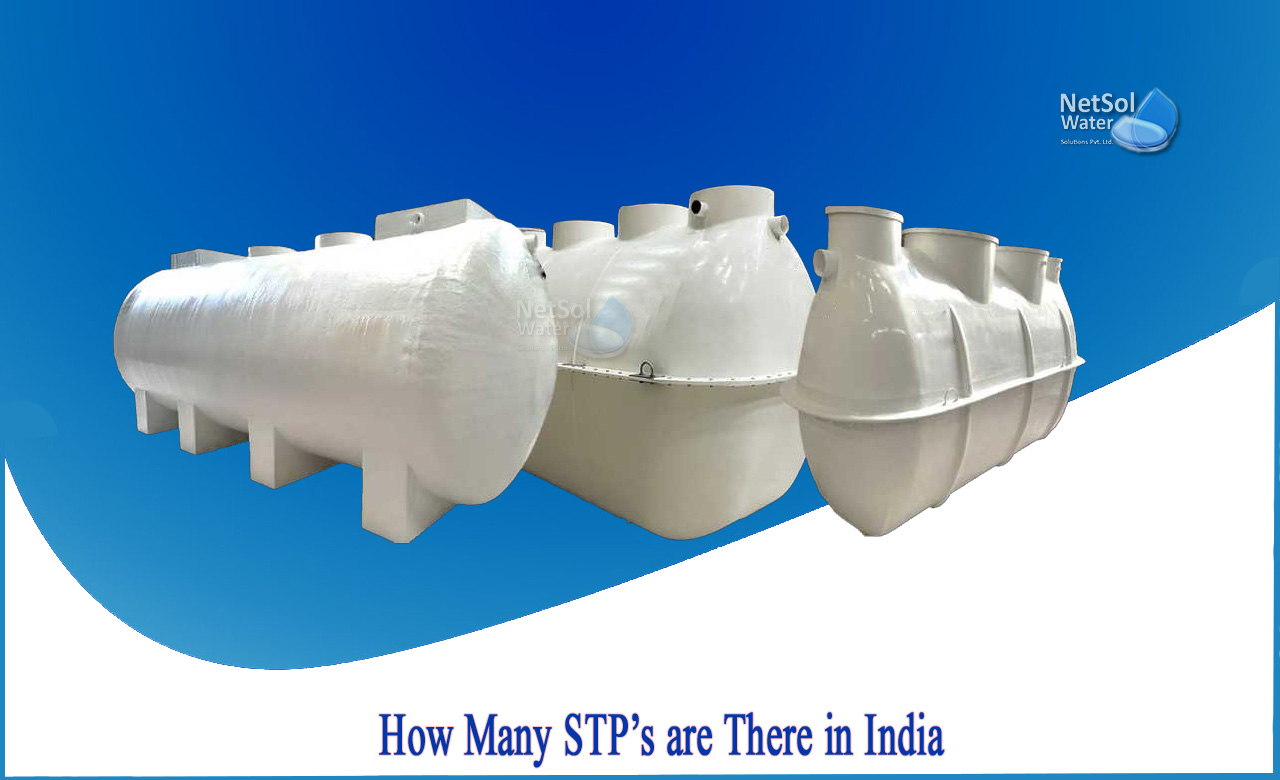What is a Sewage Treatment Plant?
Sewage treatment plant (STP) is the method of treating sewage in such a way that,treated effluent from STP’s can be directly discharged into the water streams without harming it. By harming water body is natural regeneration capacity of water body such that its ecology and environment is not polluted, and fishes and plant life can survive in it.
In India, the data shown is depressing as the sewage treatment capacity of India is very poor in terms of its demands and requirements. In terms of Sustainable development, water re-use is very important part of it and thus STP’s play important part in it.
How many Sewage Treatment Plant are there in India?
The various technologies used in sewage treatment plants are – sedimentation, coagulation, flocculation, screening, grit removal and then effluent discharge. Some other steps are also used like chlorination and filtration. It includes primary, secondary and tertiary treatments.
Urban water supply and sanitation are important basic needs for improvement which has the capacity of improving quality of life and people's productivity. In urban areas, water is for home and industrial use from rivers, streams, wells, and lakes.
Almost 80% of the water that can be used for home use, it is wastewater. In most cases, wastewater is discharged untreated and permeates as a potential pollutant drained into groundwater or natural sewers, causing pollution at the downstream area. Wastewater must be sent to a sewage treatment facility and treated wastewater must meet the aesthetic requirements of the surrounding environment for water uptake body.
Sewage treatment facilities are private facilities. Commercial and industrial activities including liquid household waste from toilets, bathrooms, showers, kitchens, sinks, etc. that are disposed of through the sewer.
Various processing technologies such as ASP, UASB, Oxidation Pond, etc. are used in India. Technologies such as SBR and MBR are used for wastewater treatment.
Central pollution Control board: STP data_
The competent authority conducted a survey on the status of urban wastewater generation and treatment. Capacity of major cities in India have been described as Class I cities and Class II cities.
The amount of wastewater generated is about 38254MLD, the processing power developed is only about 12,000 MLD and 269 STP areinstalled in India. India's urbanization is progressing rapidly.
CPCB has made an inventory of sewage treatment plant (STP):
In India, 2014-15, and in 28 states, there were 816 STPs with a capacity of 23277MLD. Of the 816 STPs, 522 STPs were in operation, 79 STPs were not in operation, 145 STPs were under construction, and 70 STPs were planned for construction.Maximum STP with ASP-based treatment technology and recent SBR-based technology arewidely used for wastewater treatment.
As good citizens of the country, we also have to help Government in establishing proper rules for disposal of sewage in river bodies safely and wisely. At least, what we can do is guide and follow proper protocols provided to us by State and Central Government agencies.
For more information on Sewage Treatment Plants, contact Netsol Water Solutions.
We are just a call away!
Netsol Water is Greater Noida-based leading water & wastewater treatment plant manufacturer. We are industry's most demanding company based on client review and work quality. We are known as best commercial RO plant manufacturers, industrial RO plant manufacturer, sewage treatment plant manufacturer, Water Softener Plant Manufacturers and effluent treatment plant manufacturers. Apart from this 24x7 customer support is our USP. Call on +91-9650608473, or write us at enquiry@netsolwater.com for any support, inquiry or product-purchase related query.



